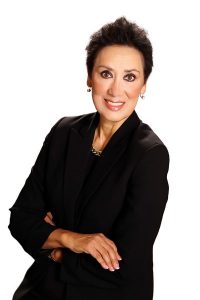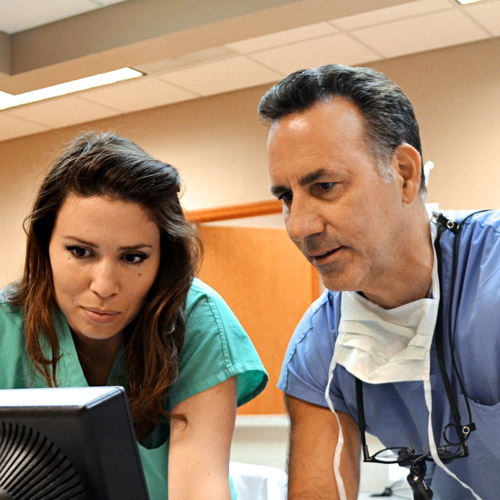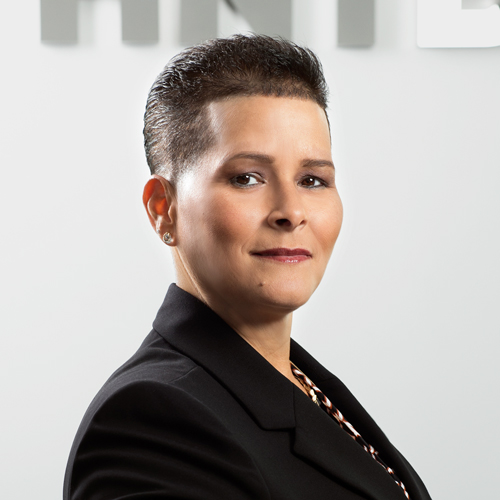
When Michele Bobadilla was thirteen years old, she accompanied her recently widowed grandmother to their local bank to deposit her late grandfather’s Social Security check. She witnessed her grandmother sign a legal document with an “X” instead of her signature, and realized that her grandmother, who was a migrant farm worker from Mexico with limited English, was functionally illiterate in both English and Spanish.
“I remember the clerk didn’t know how to respond or acknowledge my grandmother . . . it left an indelible impression with me that my grandmother was seen as a symbol,” Bobadilla says. “She was seen as someone of no real value because she had no name associated with her.”
With her grandmother’s willingness—because the pupil must possess the desire to learn and achieve—Bobadilla spent the entire summer of 1968 teaching her grandmother how to spell her name: Jesusa Rodriguez. Returning to the bank after Bobadilla’s guidance, her grandmother successfully signed her name for the first time in her life, and the bank teller responded, “Thank you Mrs. Rodriguez. We appreciate your business.”
For Bobadilla, this was a tremendously impactful moment in her life. “I could see the transformative power that education has to change your being, your self-esteem, and everything about you,” Bobadilla says.
From that moment, she knew that she wanted to provide value to the world through education. Today, Bobadilla wears many hats. She is the assistant provost for Hispanic student success as well as senior associate vice president for outreach services and community engagement at the University of Texas–Arlington (UTA), a Research 1 institution that is the largest Hispanic Serving Institute (HSI) in North Texas.
The University of Texas–Austin (UT-Austin) came calling in the late 1980s with a job in their Dallas office. Bobadilla caught the university’s interest with her work as an English-as-a-second-language teacher at Dallas ISD’s Skyline High School. Her successes with a very diverse group of immigrant students and their college attainment had become legendary.
“I had kids from thirty-eight different countries, from all over Central [and] South America, Mexico, Ethiopia—you name it,” she says. Bobadilla describes having also received refugee youth from Vietnam and Cambodia who had been airlifted from the killing fields and flown away to a new country without their families. The refugees did not have any knowledge about the education system, and they had four years to navigate the US high school system while learning English and actively pursuing their dreams of a college education. She recounts learning about life, resiliency, determination, and drive from them.
In 1988, shortly after Bobadilla was hired, UT–Austin established the UTA
University Crossroads program, which is geared toward first- and second-generation students and focuses heavily on sixth- through twelfth-graders who come from low- to moderate-income households. These students are given the guidance they need to learn about the opportunities a college degree can provide them and
how to navigate their way to the college of their choice.
University Crossroads began with thirteen partners, sharing the vision of opening the doors of higher education to those who felt it was out of reach. Today, the program—and Bobadilla’s legacy—is an award-winning partnership of more than ninety colleges and universities, chambers of commerce, community-based organizations, faith-based groups, scholarship programs, professional associations, businesses and corporations, charter schools, and school districts.
Together, these partners work hand in hand to build the college-going pipeline needed to ensure that students are prepared for the demands of the global marketplace. This goal is in line with the state’s new higher education strategic plan called 60x30TX, which aims to have 60 percent of adults, from twenty-five to thirty-four years old, hold a postsecondary degree by the year 2030.
“This is so important because, in order to meet the demands of the global marketplace and the resulting economic impact on our state, we need to have a very educated workforce.”
Michele Bobadilla
“SAT is one of those gate keepers to higher education,” Bobadilla says, pointing out a “pinnacle program.” Over 1,000 students participate annually in the three-hour SAT math preparation classes on Saturdays. A few of the services offered are financial literacy, college workshops, scholarship assistance, skills and leadership programs, and summer camps to avoid that “summer melt” kids may experience from a lack of academic engagement.
Bobadilla conducted thorough research on colleges and college acceptance processes for them and with them. Together, they worked to make their dreams a
reality.
While pursuing funding sources available to college-bound programs, applying for grants, American Airlines awarded Bobadilla a mini-grant of $1,000. With this grant, she took her students on an eye-opening bus trip to UT–Austin and Texas A&M University—the state’s two flagship institutions.
A lot of success resulted from the students’ acceptance into college with high grade point averages and scholarship awards. Bobadilla received media coverage and caught the attention of the US Department of Education Office of English Language Acquisition.
“This is so important because, in order to meet the demands of the global marketplace and the resulting economic impact on our state, we need to have a very educated workforce,” she says.

